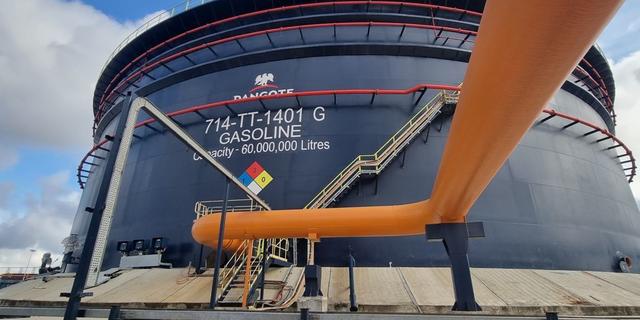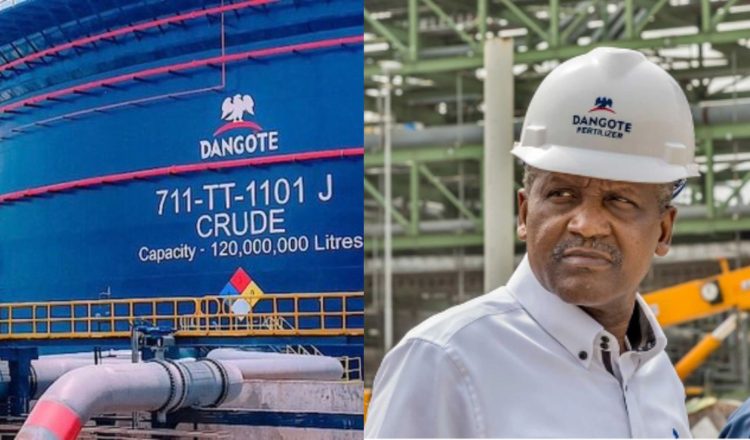Dangote Petroleum Refinery has reduced the price of Premium Motor Spirit (PMS) for marketers. The adjustment, announced by Anthony Chiejina, Group Chief Branding and Communications Officer of the Dangote Group, marks the first reduction in fuel costs since the sector’s deregulation, signaling a potentially transformative shift in the industry.
In a statement released on Sunday, Chiejina revealed that the price of PMS had been lowered from ₦990 to ₦970 per litre. He described the gesture as a token of appreciation to Nigerians and the government for their unwavering support.
“As the year draws to a close, this is our way of thanking the good people of Nigeria for their steadfast support in making the refinery a reality. Furthermore, it is a token of gratitude to the government for their backing, as this reduction aligns with efforts to promote domestic enterprise and collective well-being,” Chiejina stated.
This price cut is particularly noteworthy in light of Nigeria’s deregulated oil sector, which has often been synonymous with price hikes rather than reductions.
The announcement comes at a time when the Nigerian National Petroleum Company Limited (NNPCL) is grappling with increasing costs of PMS supply. Industry watchers have speculated on how private players like Dangote Petroleum Refinery could influence market trends, and this move provides a glimpse of that potential.
By lowering PMS prices, Dangote Refinery could be setting a benchmark for competitive pricing, offering relief to millions of Nigerians burdened by high fuel costs.
Chiejina also emphasized the refinery’s commitment to maintaining high-quality standards and sustainable practices.
“We are committed to providing high-quality, ecologically friendly, and sustainable products. Our goal is to constantly grow production to meet and surpass domestic fuel consumption needs, assuaging any fears about possible supply shortages,” he said.
As Nigeria’s largest privately owned refinery, Dangote Petroleum Refinery has pledged to increase production capacity to reduce dependency on fuel imports. This focus on local production aligns with national goals for economic sustainability and energy security.
Don’t miss:
Sex, Power, and Cameras: When Public Office Gets Too Personal
“Do You Know Who I Am?” – The Art of Nigerian ‘Bigmanism’ and its Everyday Performers
The Nigerian Japa Syndrome: Myths and Truths (I)
The Things-Fall-Apart-Okonkwo Debate: Can Idris Elba Roll Fufu?
This price reduction marks a pivotal moment for Nigeria’s petroleum industry. For a deregulated market, where prices are typically dictated by global oil dynamics and foreign exchange fluctuations, a voluntary price cut is both rare and impactful.
Analysts suggest that this move could encourage other players in the sector to explore cost-cutting measures, potentially leading to broader market stability. It may also serve as a blueprint for balancing profitability with social responsibility in an industry often scrutinized for its lack of consumer consideration.

The news has sparked mixed reactions across the country. While some Nigerians have welcomed the move as a step in the right direction, others are cautiously optimistic, awaiting its ripple effects on transportation costs and inflation rates.
If sustained, Dangote Refinery’s pricing strategy could redefine public perception of deregulation, proving that market-driven systems can still prioritize the consumer.





